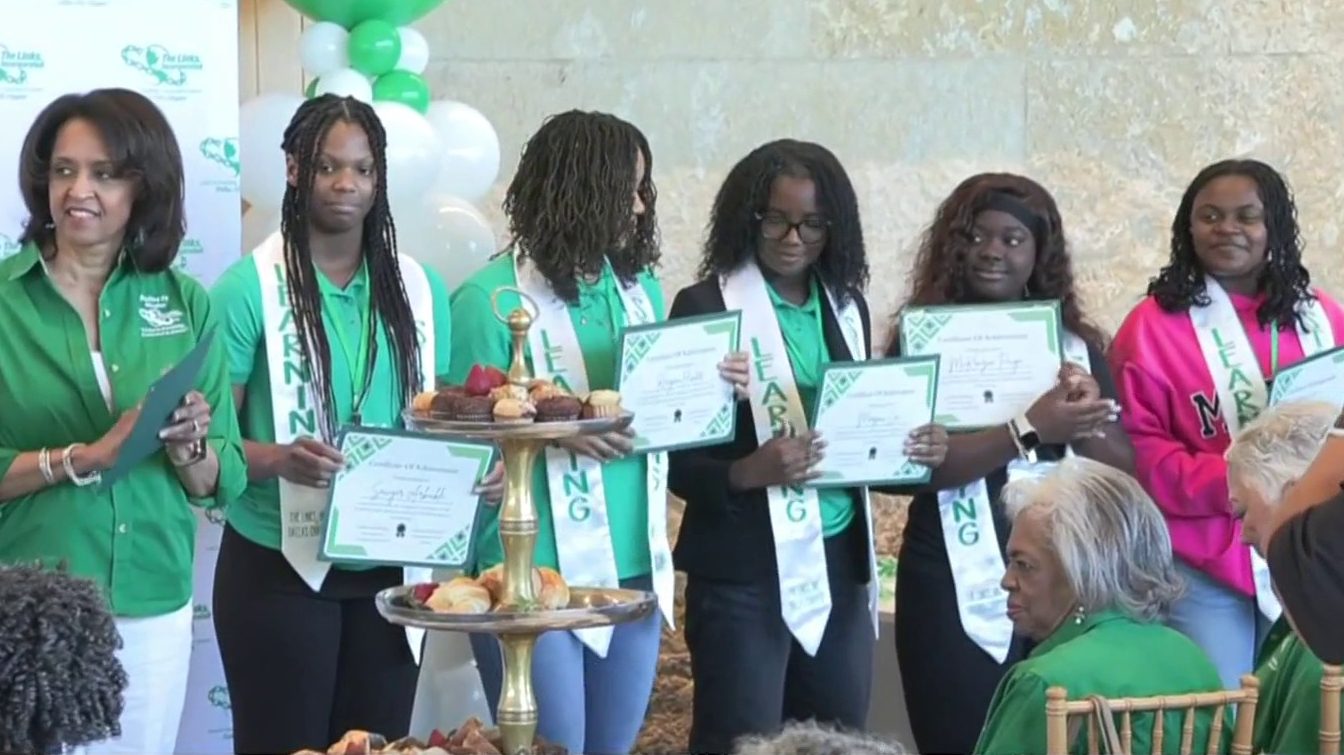NBC 5 Today is continuing our swim week coverage to help prevent drownings this summer.
Do you know what you're supposed to do if an actual drowning happens?
Local drowning prevention leaders want to show parents something they hope families never have to see in real life.
MOCK DROWNING PREPARES PARENTS FOR REAL-LIFE SITUATION
Get DFW local news, weather forecasts and entertainment stories to your inbox. Sign up for NBC DFW newsletters.
The Know Before You Go Program at Children's Health and the YMCA of Metropolitan Dallas teamed up to put together a mock drowning for our story.
It's not real – they're just using a plastic dummy but real paramedics.
Know Before You Go Program Information
Local
The latest news from around North Texas.
"This is this is something that we don't ever want to really experience other than in training," said Myron Barron, regional aquatics director for the Dallas Y.
They do these often to demonstrate exactly what the moments leading up to a drowning and the aftermath look like so that parents can know what to expect and do everything they can to prevent it.
Click the video above to watch.
"Drowning is a quick and silent event,” said Jesus Alderete, Injury Prevention Program Manager at Children's Health.
He said drownings are preventable through supervision and swim lessons.
"Our data at Children's Health shows that for 69% of the kids that drown, there was an adult present,” he said. "Parents assume that audio supervision can replace active visual supervision. Being present doesn't mean that you're actively watching."
But if a drowning does occur in a pool, he said if someone can swim, they should absolutely jump in. But there’s a lot to take into account in that circumstance.
He warns if parents don't know how to swim or are not strong swimmers, they could put themselves in danger.
"A drowning victim in distress or in panic mode can easily pull a full-grown adult right under the water as well. And then in those instances, you could have possibly two drowning incidents other than one,” Alderete said.
That’s why the phrase “throw don’t go” is an important part of most swim safety programs.
"So we encourage parents to have the right equipment in and around the pool, maybe a hook, a pool noodle something to get the kid out,” said Alderete.
You should call 911 immediately and CPR should be performed as soon as the individual is out of the water. That’s why CPR lessons are an important resource to take advantage of.
"It does make the difference between life and death in those situations, providing oxygen for those kids while medical attention arrives,” said Alderete.
SWIM LESSONS REDUCE THE RISK OF DROWNING
Swimming lessons can reduce a child's risk of drowning by 88%.
"Let me be clear, even kids that know how to swim are at risk of drowning. We all are,” said Alderete. "The dangers that lurk in around the water. They don't change even if kids know how to swim. Lifeguards should always be the parents, especially for kids that don't know how to swim or poor swimmers. They should always stay within arm's reach."
This Memorial Day weekend, all YMCA of Metropolitan Dallas branch locations will be offering free swim assessments to help families access life-saving resources.
YMCA of Metropolitan Dallas Free Swim Assessment
"It takes no more than 15 minutes. When you bring your child swim instructor will assist them and their ability in and around the water and then we'll also give you guidance on how to register for swimming lessons, which proper classes sign up for,” said Barron.
The YMCA is also working hard to put together its apartment swim program, which brings free swim lessons to apartment complexes in communities that lack access to such lessons. Trained staff give parents educational lessons and students are taught water survival skills.
"Where we partner is also important because we we make sure these partnerships are in an area where it's underprivileged or underserved," said Barron. "We want to give those free lessons because families might be in a position where they might not be able to afford the swimming lessons as well as actually have transportation to get to one of our local facilities."
There are openings this summer for complexes to register. Parents are encouraged to connect with their apartment management about seeking a partnership with the YMCA.
YMDA of Metropolitan Dallas Apartment Swim Program
All new this year, Children’s Health has also created a resource to help families prepare for the summer.
Parents can text WATER to 77444 or AGUA to 77444 for Spanish and a water safety tip will be sent to them every other Friday through the end of the year.
Tips will include helpful information such as where to find swim lesson in their area, how to properly choose a life jacket and the importance of having a designated water watcher. Families are able opt in or out of messages whenever they would like.
If you would like to volunteer or sponsor a mock drowning or water safety presentation, just email KBYG@childrens.com for more information.



